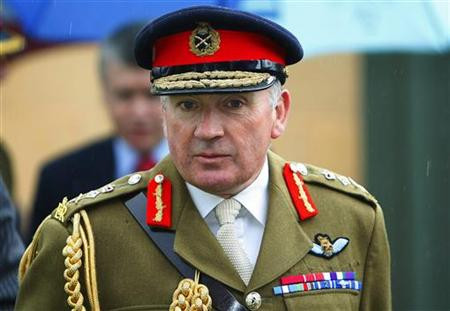A Year After Call to Bomb Bashar al-Assad, Will David Cameron Now Join Him Against Isis?

Exactly a year ago, the British government wanted to launch military action against Syria in a bid to oust President Bashar al-Assad in response to atrocities he committed against his own people.
Now, one of those who led the rejected demands for action, former foreign secretary Sir Malcolm Rifkind, has urged the UK and US to work with Assad to "eliminate" Isis (known as Islamic State).
His call has been echoed by former Army chief Lord Richard Dannatt, who also said Prime Minister David Cameron should not rule out any military action against the militants, and came as the US appeared to be planning to extend air strikes against IS into Syria.
Foreign secretary Phillip Hammond has ruled out such co-operation as being neither "practical, sensible or helpful", but with the US talking openly about striking into Syria, the pressure will mount for some sort of common front with Assad against Isis.
For many, the latest developments provide the most convincing evidence yet of just how disastrous and wrong-headed the West's historic and continuing interference in the region has been and would continue to be.
One day's evil regime becomes another day's ally as an allegedly more evil entity emerges, often as a direct result of previous interventions.
Sometimes you have to develop relationships with people who are extremely nasty in order to get rid of people who are even nastier.
It is pointed out that, had Rifkind and the prime minister got their way a year ago, the UK would have ended up supporting and arming exactly the same IS fighters currently massacring their way across Syria and Iraq.
The counter argument is that it was precisely the West's refusal to act against Assad in the first place that encouraged the rise of the militants over more moderate anti-Assad forces and led directly to the current crisis in both Syria and Iraq.
The two sides will never be reconciled and neither argument can be proved conclusively but, despite signs of a slight shift in public mood, there remains virtually no chance that those calling for direct UK military involvement will get their way.
The public remains highly sceptical about the UK's interests in the region and the benefits of such action. And, thanks to the 2003 Iraq war disaster, simply do not trust politicians to be telling them the truth or have any confidence they know what they are doing or have a coherent long-term strategy.
Despite the rejection, negotiations with Assad may well become a realistic, if unpalatable option in the future, even if it carried the obvious risk of shoring up his regime. Although voters and MPs would need some pretty persuasive answers to questions over the long-term plans for such an alliance.

Rifkind, a highly experienced, respected and hard-headed politician, is fully aware of the contradictions of such a realpolitik approach, telling the Financial Times: "[IS] need to be eliminated and we should not be squeamish about how we do it.
"Sometimes you have to develop relationships with people who are extremely nasty in order to get rid of people who are even nastier. We have to deal with facts on the ground, not as we would want them to be but as they are," he said.
"The idea that we can have a military operation in Iraq that won't have a Syrian dimension is inconceivable. For Syria to become an Isis safe haven, that is ludicrous," he said.
Meanwhile, Dannatt repeated his earlier call for parliament to get the opportunity to debate the UK's role in the crisis, urged the government to engage with Assad on the same realpolitik basis that "my enemy's enemy is my friend" and said Cameron should rule nothing out, including combat boots on the ground.
He also said he expected parliament would be recalled soon, although the most likely option remains that Cameron will wait until MPs return to the Commons in just over a week's time to update them on the situation and allow a fuller debate.
That suggests, as intended, that the prime minister currently has no intention of changing the government's approach to the crisis, aware of the public opposition to another war and deep distaste for any deal with Assad.
But, as Dannatt pointed out, the conflict has a very long way to go yet.
© Copyright IBTimes 2025. All rights reserved.






















